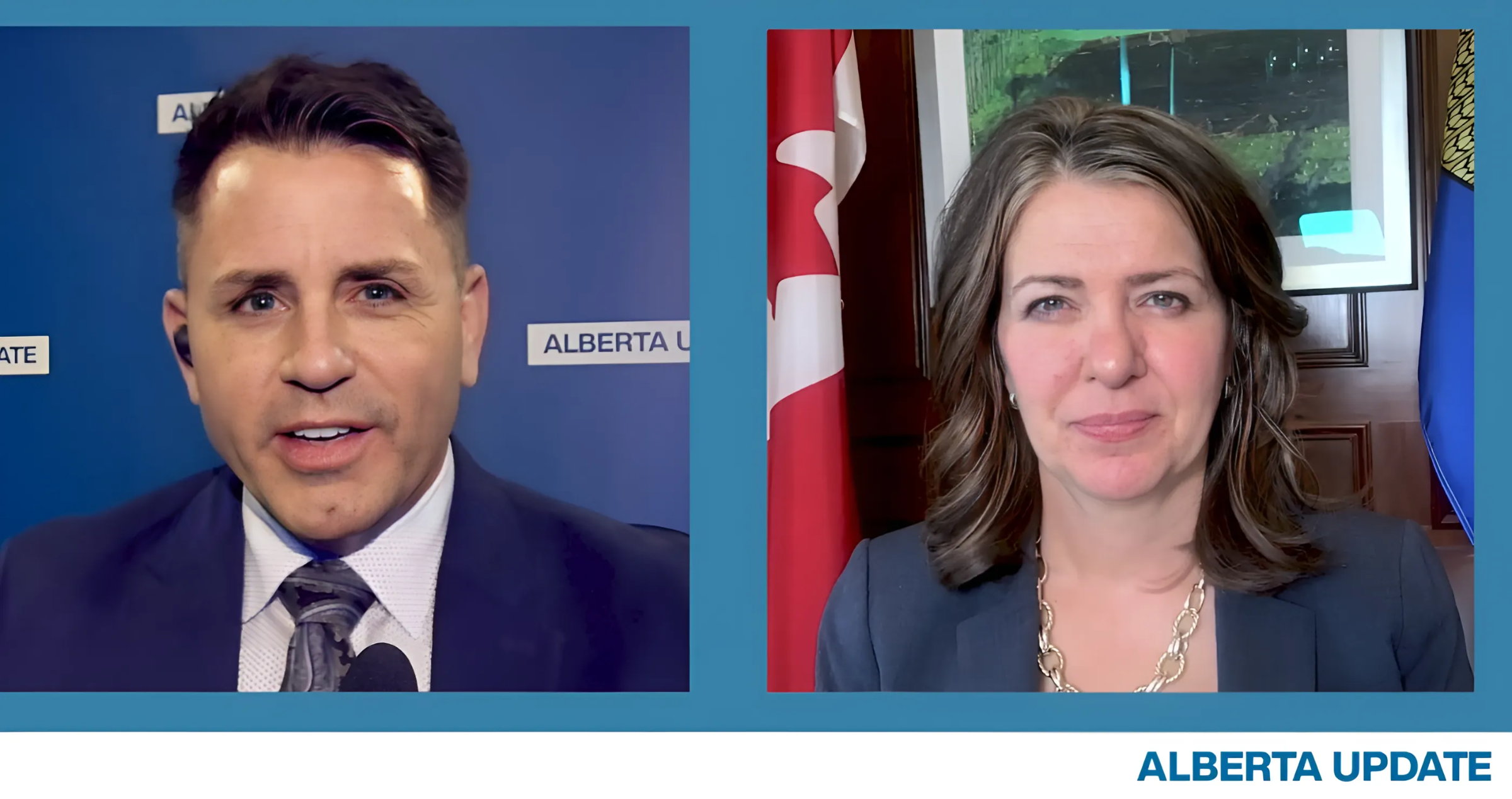Premier Danielle Smith recently appeared on Alberta Update, discussing crucial provincial matters with host Bruce McAllister. The interview shed light on Smith’s perspective on federal-provincial relations, notably her unveiling of the Provincial Priorities Act and concerns over Ottawa’s involvement in municipal affairs.
Smith emphasized the significance of the Provincial Priorities Act, drawing parallels with Quebec’s legislation that compels federal collaboration with provincial authorities on municipal agreements. She stressed Alberta’s right to equitable treatment and fair funding allocation, citing recent disparities in federal investments favoring certain municipalities.
“We’re drawing a line,” declared Smith, reaffirming her resolve to assert Alberta’s interests and prevent federal overreach. She criticized Ottawa’s tendency to “pick winners and losers,” advocating for collaborative federalism based on equitable partnerships.
The premier also addressed concerns over rising costs due to Ottawa’s carbon tax policies. Smith expressed frustration over the impact on Albertans, calling for a reassessment of the tax’s effectiveness in reducing emissions and its burden on affordability.
Turning to addiction recovery and mental health policies, Smith cited concerns raised by frontline nurses in British Columbia regarding decriminalization and safe supply initiatives. She vehemently opposed such approaches, affirming Alberta’s commitment to recovery-oriented solutions.
“We absolutely are going to support a recovery-oriented system of care,” Smith asserted, highlighting the importance of comprehensive support for individuals grappling with addiction.
Minister of Municipal Affairs Ric McIver joined the Alberta Update following Premier Danielle Smith’s insightful discussion, providing detailed insights into the newly introduced Provincial Priorities Act and shedding light on Ottawa’s treatment of Alberta.
Minister McIver echoed Premier Smith’s concerns, emphasizing that Alberta is not receiving its fair share of federal funding. He cited striking statistics to illustrate the disparity, noting that Alberta, with approximately 12% of Canada’s population, receives significantly less funding compared to other provinces. For instance, Minister McIver highlighted that federal housing commitments to Alberta municipalities were only a fraction of what British Columbia received. He pointed out that while the federal government committed $175 million to Alberta, it allocated over $2 billion to British Columbia, more than ten times the amount. He underscored the importance of equitable funding for infrastructure projects, social services, and housing initiatives, which are vital for the province’s development.
Minister McIver expressed concern over Ottawa’s interference in municipal matters, citing instances where the federal government imposed changes on municipalities without proper jurisdiction. He highlighted the need for Alberta to assert its autonomy and demand equal treatment in funding allocations, akin to what Quebec receives.
Addressing the impact of the Provincial Priorities Act on rural municipalities, Minister McIver stressed that the legislation aims to ensure equitable distribution of federal funding across all municipalities in Alberta. He lamented the current situation where only a handful of municipalities receive federal support, leaving many rural areas neglected.
“We’re standing up for Alberta under the leadership of Premier Smith,” Minister McIver affirmed, emphasizing the province’s commitment to fair treatment and equal opportunities for all municipalities.
Regarding existing agreements between the federal government and major cities like Calgary and Edmonton, Minister McIver clarified that these agreements would remain unaffected by the Provincial Priorities Act. However, he cautioned against future agreements that could undermine Alberta’s interests, particularly in areas like energy policy.
Minister McIver concluded by addressing the federal housing minister’s response to Alberta’s requests for fair funding. He expressed disappointment with the federal government’s actions, suggesting that Ottawa’s promises did not align with their actions. Despite initial positive conversations, Minister McIver highlighted a perceived lack of follow-through from the federal government.

